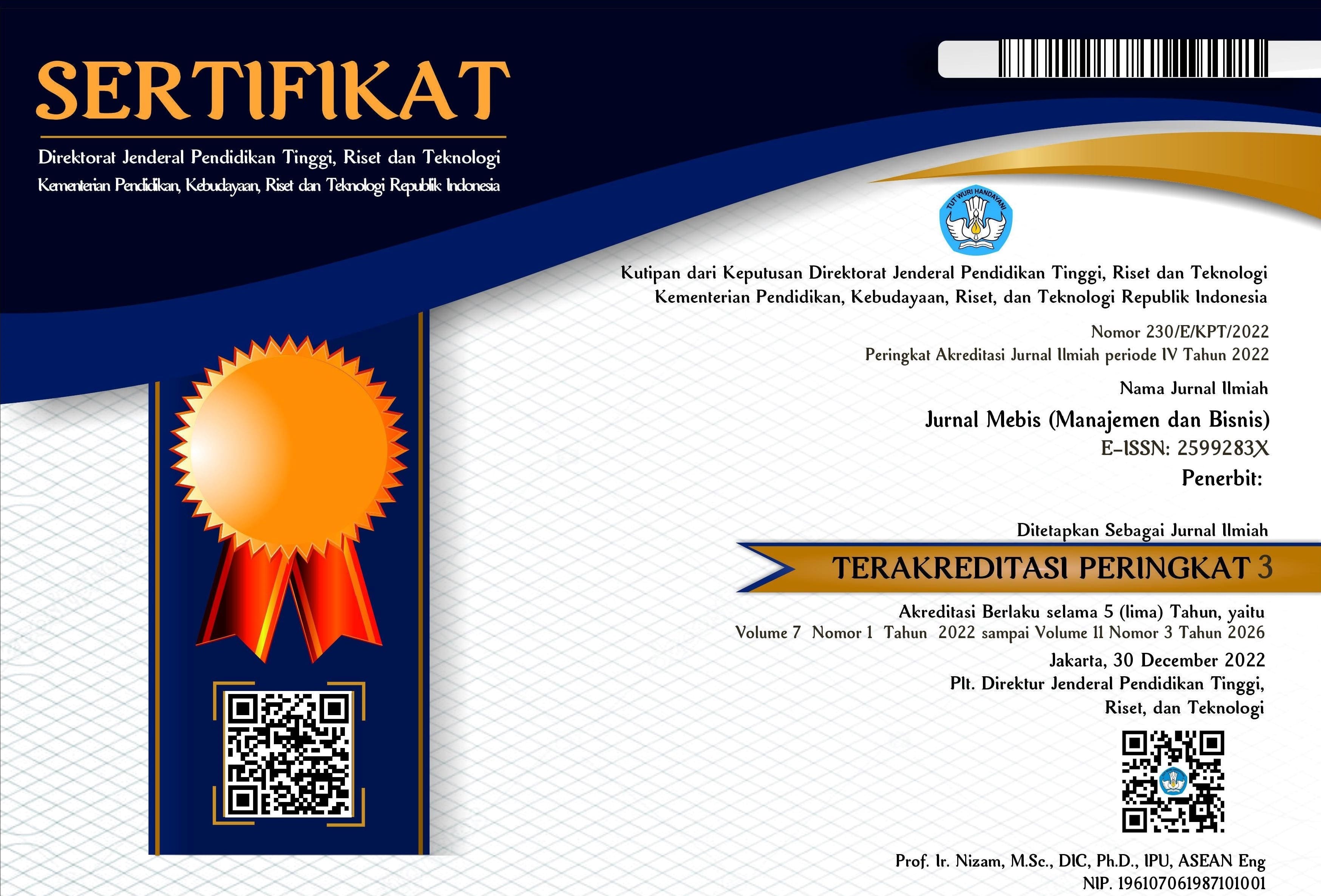Balancing Profit and Planet: How ESG Criteria Are Reshaping Capital Structure in Indonesia
DOI:
https://doi.org/10.33005/mebis.v4i2.612Keywords:
ESG, Capital StructureAbstract
Environmental, Social, and Governance (ESG) criteria have gained significant importance in Indonesia's corporate landscape, driven by global trends and local initiatives. The Indonesian government’s commitment to achieving the Sustainable Development Goals (SDGs) by 2030 has accelerated the integration of ESG principles into business practices. This research aims to determine the influence of ESG performance on the capital structure of companies in Indonesia. This research uses quantitative methods, analysing the relationship between ESG scores and company funding decisions, especially those using debt versus internal funding sources. The findings suggest that companies with higher ESG performance tend to rely less on debt financing and prefer retained earnings and equity to support sustainable initiatives. Companies with strong ESG practices exhibit lower environmental risks, healthier financial reports and better credit ratings, reducing funding costs. The study concludes that integrating ESG factors into corporate financing will reduce the risks associated with high debt levels and be in line with long-term value creation, improve corporate governance, and attract ESG-focused investments. This research contributes to the growing understanding of the impact of ESG on capital structure decisions in Indonesia by highlighting its role in creating a sustainable and resilient business environment.












